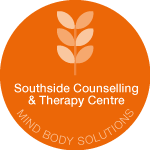What is Couple and Relationship Counselling?
Intimate couple relationships can be the greatest source of contentment we experience as human beings. But when they go wrong it can lead to sadness, anxiety, loneliness. At Southside Counselling and Therapy Centre, we offer both couple counselling, where both partners attend together, and relationship counselling for individuals.
Sometimes couples aren’t sure whether coming to counselling together is what they want, or one partner is less sure than the other that they would like to attend. So an initial session with the counsellor can be helpful to explore feelings about the process, and to reach a joint decision about whether to enter couple counselling. If the couple decide to go ahead with joint counselling, a contract is made, and the process explained in more detail by the counsellor. Some couple counsellors will hold individual sessions within the overall couple counselling contract, and this process will be fully explained.
How does Couple Counselling work?
Couple counselling proceeds on the basis that both partners are willing to accept responsibility for the future of their relationship. Sometimes of course one partner might feel that the other bears most of the blame for the situation that they face. And this is fully explored during counselling. One partner may feel betrayed, or hurt, or misunderstood by the other. Couple counselling works by emphasising that each partner has emotional needs, and helps the couple to communicate these, to reach a deeper understanding of each other and to find a new way of relating in the future. Both partners are fully involved in the counselling process and each one develops a deeper understanding of their role in the relationship. The counsellor will not tell you what to do, or give advice, but will help both of you to decide on the changes you would like to make. There are times when couples decide during the course of counselling that their relationship is over, and the counsellor will not try to persuade you to stay together if you have decided to end the relationship.
Who is Couple counselling suitable for?
Couple counselling is for any couple who feel that they would like their relationship to improve and are prepared to work on that together. It is for couples who have only been together for a short time, or those who have been partners for many years. It is for same sex and opposite sex couples.
What issues or problems are suited to Couple Counselling?
Each couple is unique and will bring their own particular issues to counselling. Some of the most common areas which couples bring include:
- Difficulties with intimacy – really feeling part of a ‘couple’
- Sex
- Money
- Children
- Fertility issues
- Extended families (‘in-laws’)
- Affairs
- Work
- Anger, anxiety or depression triggered by the relationship
- Difficulties in communication
How many sessions will we have?
This will depend on the discussions you have with your counsellor. It is useful to think in terms of six sessions to begin with, which can be extended. Where the difficulties are long standing, and/or where there is a high degree of emotional distress evident, more sessions are likely to be recommended. Sometimes it can take a while to feel comfortable discussing with your partner issues which have been unexplored for a considerable time.
Individual relationship counselling
This is for anyone who would like to explore issues around their personal relationships. These might be romantic relationships, or sometimes relationships in the family or at work or with friends.
How does individual relationship counselling work?
As with other forms of counselling, how the sessions work will be up to you and what you bring. The counsellor may help you look at patterns in your life around relationships, or they may help you explore ways n which your current relationship might be better.
What issues or problems are suited to individual relationship counselling?
Sometimes individual relationship counselling might be used by someone to discuss issues arising in their couple relationship, where the partner is unwilling or unable to attend. Or sometimes it may be that someone who finds relationships difficult might want to explore why that might be, or someone who has been hurt or let down might want to process and discuss that experience.
How many sessions will I have?
This is up to you, in discussion with your counsellor.






